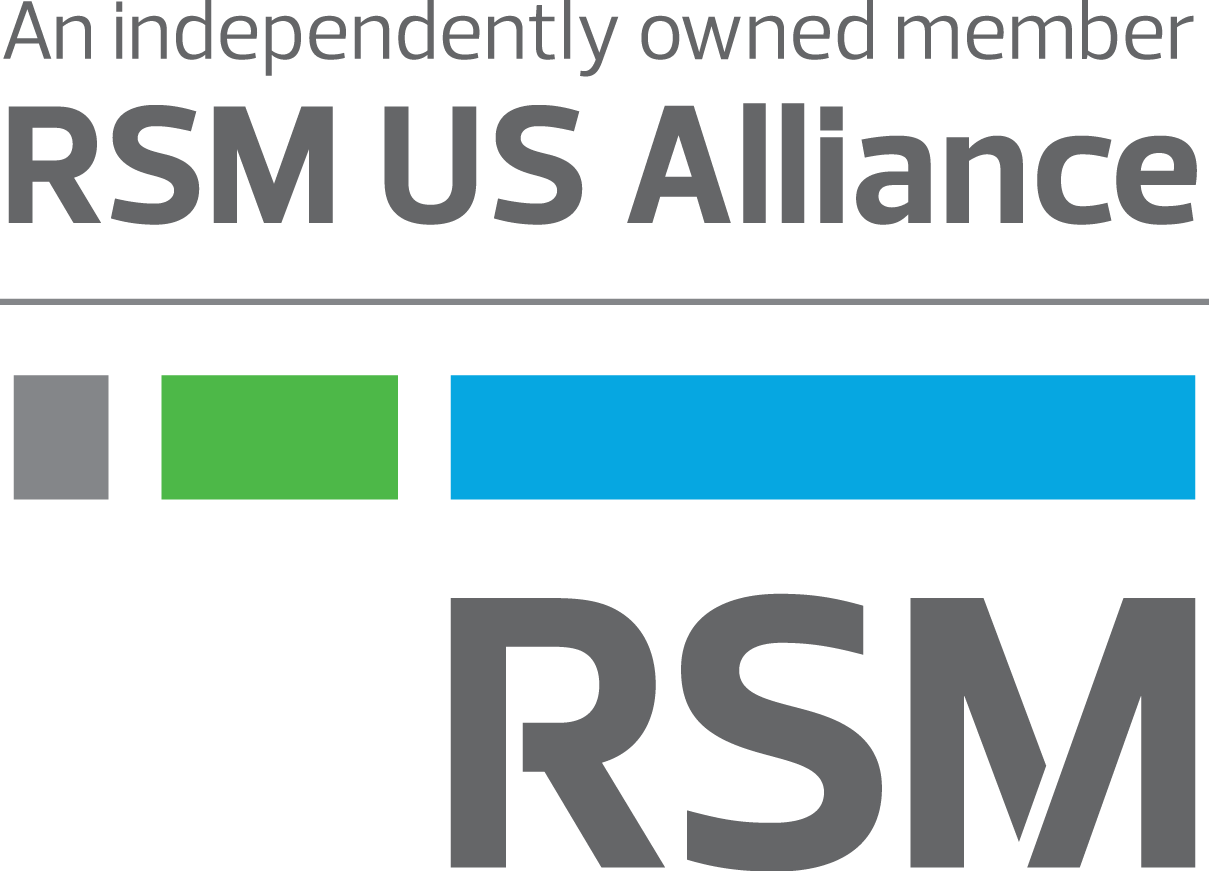
IRS expands scope of letter ruling program to include many corporate transactions
ARTICLE | January 04, 2024
Authored by RSM US LLP
Executive summary
Expanded IRS letter ruling policy covers many common corporate transactions
As was suggested previously by IRS Associate Chief Counsel (Corporate) Mark Schneider, the IRS has announced that it is significantly increasing the category of corporate transactions on which the IRS will issue a private letter ruling (PLR). This is welcome news for corporate taxpayers and shareholders looking to obtain a high level of comfort on corporate transactions such as tax-free reorganizations, incorporations, liquidations and section 355 distributions (spin-offs). While subject to factual confirmations, the receipt of a PLR provides a taxpayer with a near-guarantee on the tax treatment of a transaction. A PLR can also simplify subsequent tax diligence and reduce the need to obtain or cost of obtaining tax insurance on the transaction. Receipt of a PLR does carry financial cost and take time to obtain, but with the proper planning it is the gold standard for corporate taxpayers.
Background
On Jan. 1, 2024, in Rev. Proc. 2024-1 and Rev. Proc. 2024-3, the IRS announced a significant expansion of its private letter ruling program. In the past, the IRS did not issue letter rulings on many run-of-the-mill corporate transactions. The IRS has now stated it will begin to issue rulings on these transactions.
This announcement follows a statement by Mark Schneider, IRS Associate Chief Counsel for the corporate division, who in October 2023 stated that he intended to “significantly broaden” the scope of letter rulings his office would issue so that the program would cover various corporate transactions—from “soup to nuts.”
What are Private Letter Rulings?
PLRs are written determinations by the IRS that apply the tax law to a taxpayer’s specific set of facts. Although they do not constitute formal tax precedent, they bind the IRS with regard to a specific transaction, as long as the taxpayer fully and accurately describes the proposed transaction and carries it out as described. Such a ruling can provide a high degree of certainty for a taxpayer, as the taxpayer can rely on the ruling to avoid adverse tax consequences that might otherwise arise from the transaction.
A PLR provides several benefits for corporate taxpayers and their shareholders. First, a PLR can provide certainty and confidence during the deal process and thereby reduce the risk of unexpected tax liabilities or penalties. Second, a PLR can simplify a subsequent tax diligence process or IRS examination of the company or of the transaction, as the IRS generally does not revisit an issue addressed in a PLR. Third, a PLR can reduce the need for or cost of obtaining tax insurance on a transaction, as the PLR can serve as evidence of the strength of the taxpayer’s position.
There are two general types of rulings; (i) “comfort rulings,” which are rulings related to an issue clearly addressed in the tax authorities and issued simply to provide certainty to a taxpayer regarding a particular transaction,1 and (ii) rulings on “significant issues,” which are rulings on tax technical questions that were not clearly established by law, regulations or guidance.2
The ruling process does involve some costs and challenges. First, the IRS charges a user fee for issuing a PLR, which can vary depending on the type and complexity of the transaction. Second, the ruling process can take many months. (Note, however, that in 2022 the IRS implemented a “fast-track” letter ruling program, under which the agency issues certain corporate PLRs within a shortened 12-week timeframe, as discussed in a previous alert, New fast-track program for corporate PLRs cuts process time in half.) And third, the IRS may decline to issue a PLR if the request involves an issue that is unclear, controversial or under study by the IRS.
What has changed about the PLR program?
The IRS traditionally limits the scope of issues and transactions on which it will issue a PLR—issues it will not rule on appear on a “no-rule list.” In prior years, the IRS has stated3 that it will not issue comfort rulings on whether a transaction qualifies under sections 332 (tax-free liquidations), 351 (tax-free incorporations and transfers to corporations), 1036 (certain tax-free recapitalizations) and section 368 (tax-free reorganizations) (other than D or G reorganizations intersecting with section 355). With regard to all these categories of corporate transactions, the IRS would generally only rule on “significant issues” (a term explained above). The IRS also would not rule on certain aspects of section 355 transactions, such as the business purpose or the device test, unless there was a legal issue involved.
These ruling limitations left many corporate taxpayers in a difficult position, as they were forced to rely on tax opinions or other forms of tax advice to support their transactions, and those forms of advice do not have the same binding effect on the IRS as a PLR. (An additional consequence of the IRS’s failure to rule on these matters is that it reduced the IRS’s insight and visibility into the intricacies of corporate transactions, as noted by Schneider.)
Rev. Proc. 2024-3 removes transactions under sections 332, 351, 368 and 1036 from the no-rule list, indicating that the IRS will now begin to issue comfort rulings on these corporate transactions. Further, the IRS’s approach to section 355 spin-off transactions will change; the IRS will now rule on the question of whether a spin-off transaction is used principally as a “device” and on issues under section 355(e). However, as in the past, the IRS will continue to generally not issue a ruling on whether a taxpayer’s business purpose is sufficient for section 355 purposes.
Aside from the changes related to corporate transactions discussed here, the Revenue Procedure mentions several other tax provisions that have been moved on or off the no-rule list. One notable change relates to section 1202—the IRS will not rule on whether a corporation meets the active business requirement of section 1202(e).
1 A comfort ruling is generally a ruling on an issue that is clearly and adequately addressed by a statute, regulation, or court decision; or revenue rulings, revenue procedures, notices, or other authorities published in the Internal Revenue Bulletin.
2 A significant issue is a germane and specific issue of law, provided that a ruling on the issue would not be a comfort ruling, or the conclusion in such a ruling otherwise would not be essentially free from doubt. An issue is germane if resolution of the issue is necessary to determine an element of the tax treatment of the transaction. An issue is specific if it is the narrowest articulation of the germane issue. A change of circumstances arising after a transaction ordinarily does not present a significant issue with respect to the transaction.
3 See the (now superseded) Rev. Proc. 2023-3.
This article was written by Nick Gruidl, Joseph Wiener, Nate Meyers and originally appeared on 2024-01-04.
2022 RSM US LLP. All rights reserved.
https://rsmus.com/insights/tax-alerts/2024/irs-expands-scope-letter-ruling-program-include-many-corporate-transactions.html
The information contained herein is general in nature and based on authorities that are subject to change. RSM US LLP guarantees neither the accuracy nor completeness of any information and is not responsible for any errors or omissions, or for results obtained by others as a result of reliance upon such information. RSM US LLP assumes no obligation to inform the reader of any changes in tax laws or other factors that could affect information contained herein. This publication does not, and is not intended to, provide legal, tax or accounting advice, and readers should consult their tax advisors concerning the application of tax laws to their particular situations. This analysis is not tax advice and is not intended or written to be used, and cannot be used, for purposes of avoiding tax penalties that may be imposed on any taxpayer.
RSM US Alliance provides its members with access to resources of RSM US LLP. RSM US Alliance member firms are separate and independent businesses and legal entities that are responsible for their own acts and omissions, and each are separate and independent from RSM US LLP. RSM US LLP is the U.S. member firm of RSM International, a global network of independent audit, tax, and consulting firms. Members of RSM US Alliance have access to RSM International resources through RSM US LLP but are not member firms of RSM International. Visit rsmus.com/aboutus for more information regarding RSM US LLP and RSM International. The RSM(tm) brandmark is used under license by RSM US LLP. RSM US Alliance products and services are proprietary to RSM US LLP.

VPTAX is a proud member of RSM US Alliance, a premier affiliation of independent accounting and consulting firms in the United States. RSM US Alliance provides our firm with access to resources of RSM US LLP, the leading provider of audit, tax and consulting services focused on the middle market. RSM US LLP is a licensed CPA firm and the U.S. member of RSM International, a global network of independent audit, tax and consulting firms with more than 43,000 people in over 120 countries.
Our membership in RSM US Alliance has elevated our capabilities in the marketplace, helping to differentiate our firm from the competition while allowing us to maintain our independence and entrepreneurial culture. We have access to a valuable peer network of like-sized firms as well as a broad range of tools, expertise, and technical resources.
For more information on how the VPTAX can assist you, please call us at (408) 278-8370.